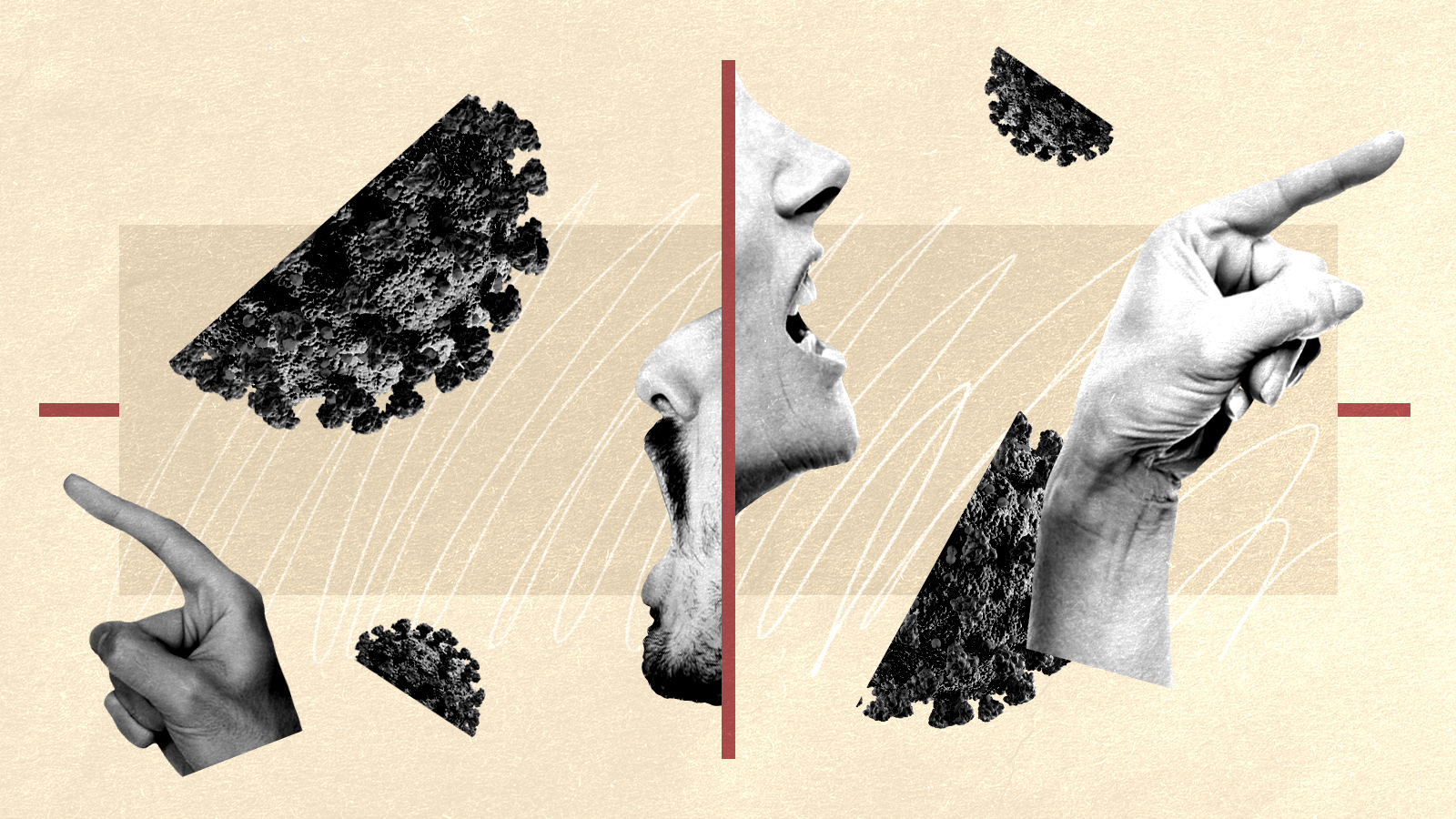COVID debates are more than just science vs. misinformation


A free daily email with the biggest news stories of the day – and the best features from TheWeek.com
You are now subscribed
Your newsletter sign-up was successful
During the time before vaccines, a friend of mine told me he was traveling home for Christmas despite the pandemic but would not visit his 93-year-old grandmother. A perfectly reasonable position: She was in a high-risk group for COVID-19 based on age. No one would want to make their loved ones sick.
And yet, how many more Christmases and how many more visits can a 93-year-old grandmother be expected to enjoy? Actuarially speaking, not visiting her may mean never seeing her again. Perhaps, if she is up for the risk, you should be too? It would also still be understandable for you to not want to bear the responsibility of making her potentially fatally ill, even if she extended the invitation.
The above dilemma is a common one in the COVID era and it does not come down to science versus misinformation. People can reach different conclusions about what the correct answer is while looking at the same data. Many of the conflicts we have over the pandemic are not about having different views of what the science says, although that certainly does happen as well. The biggest debates involve trade-offs and differences in values or priorities.
The Week
Escape your echo chamber. Get the facts behind the news, plus analysis from multiple perspectives.

Sign up for The Week's Free Newsletters
From our morning news briefing to a weekly Good News Newsletter, get the best of The Week delivered directly to your inbox.
From our morning news briefing to a weekly Good News Newsletter, get the best of The Week delivered directly to your inbox.
Those debates can be informed by the science. But science cannot resolve them. Science can help understanding of the risk of exposing my grandmother to COVID. It can also tell me what a normal human lifespan is. But it cannot tell me what the right answer is in terms of visiting her, at least in a way that is acceptable to everyone.
Some of the differences of opinion over business restrictions during the pandemic or mask mandates or other public policies may stem from how seriously one takes the virus. But often, they come down to valuing certain cost-benefit analyses differently. The government, of course, has to try to make these decisions based on the common good. But individual policymakers will differ, sometimes based even on their own areas of expertise.
None of this is to say there isn't a great deal of misinformation circulating, especially about the vaccines. But believing in science is not the same as believing it resolves all questions in life.
A free daily email with the biggest news stories of the day – and the best features from TheWeek.com
W. James Antle III is the politics editor of the Washington Examiner, the former editor of The American Conservative, and author of Devouring Freedom: Can Big Government Ever Be Stopped?.
-
 6 of the world’s most accessible destinations
6 of the world’s most accessible destinationsThe Week Recommends Experience all of Berlin, Singapore and Sydney
-
 How the FCC’s ‘equal time’ rule works
How the FCC’s ‘equal time’ rule worksIn the Spotlight The law is at the heart of the Colbert-CBS conflict
-
 What is the endgame in the DHS shutdown?
What is the endgame in the DHS shutdown?Today’s Big Question Democrats want to rein in ICE’s immigration crackdown
-
 Big-time money squabbles: the conflict over California’s proposed billionaire tax
Big-time money squabbles: the conflict over California’s proposed billionaire taxTalking Points Californians worth more than $1.1 billion would pay a one-time 5% tax
-
 Did Alex Pretti’s killing open a GOP rift on guns?
Did Alex Pretti’s killing open a GOP rift on guns?Talking Points Second Amendment groups push back on the White House narrative
-
 Washington grapples with ICE’s growing footprint — and future
Washington grapples with ICE’s growing footprint — and futureTALKING POINTS The deadly provocations of federal officers in Minnesota have put ICE back in the national spotlight
-
 Trump’s Greenland ambitions push NATO to the edge
Trump’s Greenland ambitions push NATO to the edgeTalking Points The military alliance is facing its worst-ever crisis
-
 Why is Trump threatening defense firms?
Why is Trump threatening defense firms?Talking Points CEO pay and stock buybacks will be restricted
-
 The billionaires’ wealth tax: a catastrophe for California?
The billionaires’ wealth tax: a catastrophe for California?Talking Point Peter Thiel and Larry Page preparing to change state residency
-
 Trump considers giving Ukraine a security guarantee
Trump considers giving Ukraine a security guaranteeTalking Points Zelenskyy says it is a requirement for peace. Will Putin go along?
-
 Bari Weiss’ ‘60 Minutes’ scandal is about more than one report
Bari Weiss’ ‘60 Minutes’ scandal is about more than one reportIN THE SPOTLIGHT By blocking an approved segment on a controversial prison holding US deportees in El Salvador, the editor-in-chief of CBS News has become the main story
